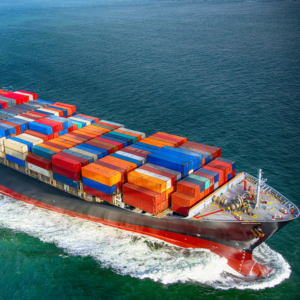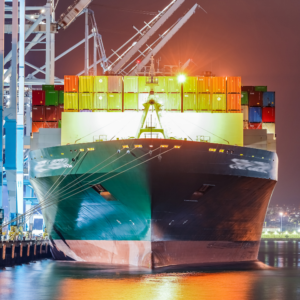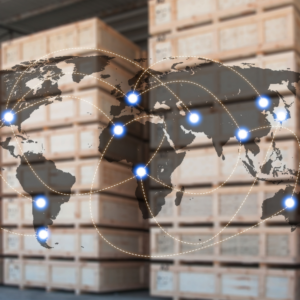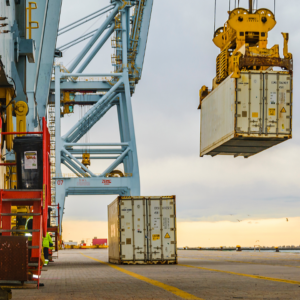 International freight services are crucial in global trade, enabling businesses to transport goods across borders efficiently. Whether shipping by air, ocean, or land, choosing the exemplary freight service ensures smooth and cost-effective transportation.
International freight services are crucial in global trade, enabling businesses to transport goods across borders efficiently. Whether shipping by air, ocean, or land, choosing the exemplary freight service ensures smooth and cost-effective transportation.
In this guide, we’ll explore international freight services, how they work, and how to optimize your logistics for seamless global shipping.
What is International Freight?
International freight refers to transporting goods across countries using different modes of transport, including air, ocean, and land freight. Businesses rely on freight shipping to move products efficiently while navigating customs regulations, shipping costs, and delivery timelines.
How Does International Freight Work?
The process of international freight shipping consists of several key stages:
- Export Haulage – Transporting goods from the origin to a freight terminal, warehouse, or port.
- Export Customs Clearance – Completing customs documentation and paying any export duties.
- Transportation – Choosing a suitable air, ocean, rail, or intermodal freight shipping method.
- Import Customs Clearance – Ensuring compliance with local import regulations and tariffs.
- Import Haulage – Delivering goods from the destination terminal to the final recipient.
Many freight services also offer tracking systems to monitor shipments in real time.
Modes of International Freight Transportation
- Air Freight Services

Benefits of Air Freight:
- Speed: Quick delivery, usually within days.
- Security: Safe and reliable for valuable or fragile goods.
- Global Reach: Direct access to international airports.
Drawbacks:
- Cost: Higher shipping rates compared to other freight methods.
- Weight & Size Limitations: Restrictions on large or heavy shipments.
- Ocean Freight Services
Ocean freight is the most cost-effective option for large shipments, particularly for bulk goods.
Advantages of Ocean Freight:
- Low Cost: Cheaper than air freight for heavy shipments.
- High Capacity: Ideal for large cargo loads.
- Eco-Friendly: Lower carbon footprint compared to air freight.
Challenges:
- Longer Transit Times: Shipping can take weeks or months.
- Port Delays: Potential holdups due to customs or port congestion.
- Land Freight Services
Land freight includes trucking and rail transport, often used for domestic or regional shipments.
Key Benefits:
- Flexible Routes: Door-to-door delivery services.
- Lower Costs: More affordable for shorter distances.
- Connectivity: Links air and ocean freight for intermodal transport.
Limitations:
- Border Delays: Customs procedures may cause slowdowns.
- Road & Rail Restrictions: Some areas have limited freight access.
Choosing the Right International Freight Service
Factors to Consider:
- Shipment Size & Weight: Larger shipments are best suited for ocean freight, while smaller, urgent items may require air freight.
- Urgency: If speed is a priority, air freight is the best choice.
- Budget: Ocean freight is more cost-effective for bulk shipping.
- Destination: Some locations have better air freight access, while others rely on ocean or rail.
- Customs Regulations: Ensure compliance with the destination country’s import policies.
Working with a Freight Forwarder
Freight forwarders streamline shipping by handling carrier selection, customs clearance, documentation, and logistics coordination. A digital freight forwarder like ExFreight provides instant quotes, online booking, and real-time shipment tracking for a seamless experience.
The Role of Logistics Services in Freight Shipping

- Warehousing & Distribution – Storing and managing cargo before shipment.
- Customs Brokerage – Handling import/export documentation.
- Supply Chain Optimization – Enhancing efficiency in transportation and delivery.
Using a logistics network helps businesses manage international shipments efficiently and avoid delays.
Frequently Asked Questions (FAQs)
What is an International Freight Forwarder?
A freight forwarder arranges and manages the transportation of goods across borders. They handle carrier selection, customs clearance, and logistics coordination.
What is the Difference Between Freight and Cargo?
- Freight refers to the shipping process.
- Cargo refers to the actual goods being transported.
How Much Does International Freight Shipping Cost?
Costs depend on shipment weight, destination, transport mode, and customs fees. Air freight is generally more expensive than ocean or land freight.
How Long Does International Freight Shipping Take?
- Air Freight: 1-7 days.
- Ocean Freight: 10-60 days.
- Rail Freight: 15-20 days.
What Services Does ExFreight Offer?
ExFreight provides:
- Air and ocean freight forwarding
- LTL and FTL trucking
- Customs brokerage
- Door-to-door international shipping.
International freight services are essential for global trade, offering businesses reliable shipping solutions. Companies can optimize their supply chains and ensure smooth delivery by selecting the correct transportation mode and working with an experienced freight forwarder.
Ready to streamline your international shipping? Explore ExFreight’s digital freight forwarding solutions and get instant quotes today!





Leave A Comment
You must be logged in to post a comment.